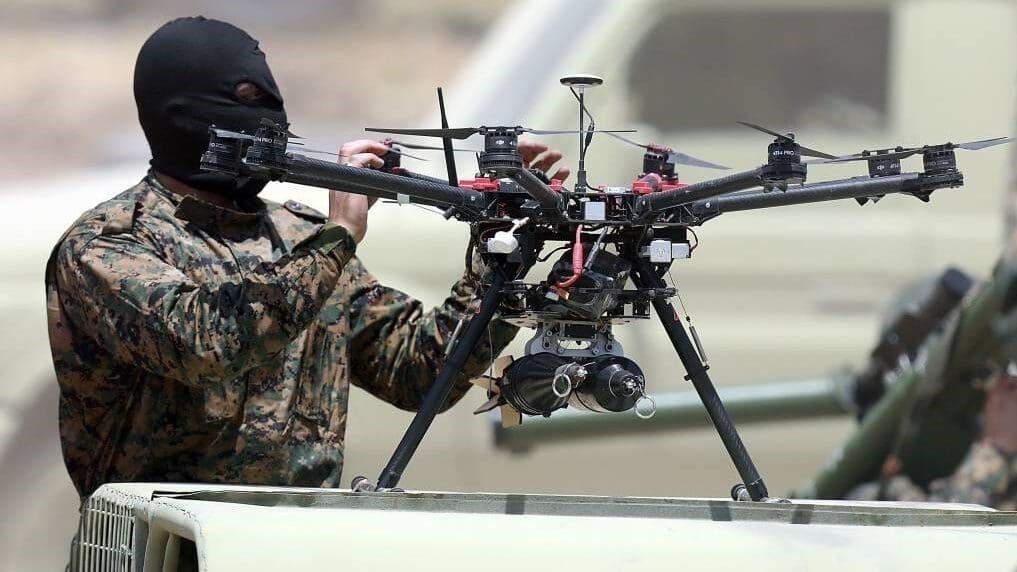
Hezbollah carrying out a training exercise in Aaramta village in the Jezzine District, southern Lebanon, May 21, 2023.
Photo: Tasnim News Agency, CC BY 4.0, via Wikimedia Commons
The risks to Israel are intensifying. It is already menaced by a coalition of Iran-backed Islamist groups, with—like Hamas—a constitutional commitment to eliminating the Jewish State, and the Jews. Now, following the assassination of a number of Islamist officials, Israel’s enemies have sworn revenge. This could intensify the aggression of Tehran’s proxies, currently attacking Israel on up to seven fronts, or even bring in Iranian forces more directly.
While Israel is engaged in a highly publicised war started by Hamas on October 7th last year, it also faces coordinated assaults from the Houthi Movement in Yemen, Shia militias operating from Iraq and Syria, and—probably the greatest immediate danger—from Hezbollah in Lebanon. Following Hezbollah rocket attacks, which started on October 8th, its commander Fuad Shukr was killed last week—most likely in an unclaimed IDF operation.
Recognising this self-styled ‘axis of resistance’ as an ensemble of Iranian proxies should not minimise the danger it presents. Iran is a significant regional power, working with armed groups committed to destroying the Jewish State (and Jews), which could one day confront Israel directly. Failure in the West to hold firm in support of Israel will only embolden such forces. Israeli resolve contrasts sharply with that of so-called allies in the West.
Take U.S. presidential hopeful Kamala Harris who is base-building within the Democratic Party at the expense of support for Israel, for instance. This led to her boycotting an address to Congress by Israeli Prime Minister Benjamin Netanyahu, who just about restrained himself from calling the VP one of “Iran’s useful idiots” who “stand with evil” at U.S campus protests.
Then there’s European Union High Representative for Foreign Affairs and Security Policy and Vice-President of the European Commission Josep Borrell, a long-term opponent of Israel. He has continually called for a ceasefire, most recently by pushing for a so-called “renewed Israeli-Palestinian political track” at a recent on-the-record panel. Borrell’s warped priorities can be seen in his choosing to recognise the (currently non-existent) state of Palestine at a time of great peril for Israel.
The democratic backsliding is also plain to see in Britain under Sir Keir Starmer’s UK Labour government, where an end to ‘offensive’ arms sales seems imminent. “Starmer’s abandonment of Israel would make [Jeremy] Corbyn proud,” writes the Telegraph. In a reversal of the previous government’s approach toward the activist International Criminal Court, the UK in effect “now supports the issuing of arrest warrants against the leader and defence minister of one of our closest allies because they are defending their country against terror.”
Such U.S-EU-UK equivocation adds to the very real threats to Israel’s survival.
Israel will neither confirm nor deny its role in killing terrorist Ismail Haniyeh and others like him—but a Hamas defeat is more likely with the demise of several senior figures in its leadership. Predictably, the architects of the October 7th pogrom will be targeted and eliminated, like those who murdered Israeli athletes at the Munich Olympics in 1972.
Israel’s capacity to strike back may reassure its citizens about their future security. Yet for Western elites, taking out the Hamas political leader, and his military chiefs Mohammed Deif and Rafa Salama, merely complicates ceasefire negotiations. U.S. President Joe Biden says killing Ismail Haniyeh has “not helped,” but so what? If Israel complies with pressure to revert to the ceasefire already in place on October 6th which Hamas broke, its enemies in Gaza would merely use the time to regroup and rearm. The Islamist outfit has said as much itself.